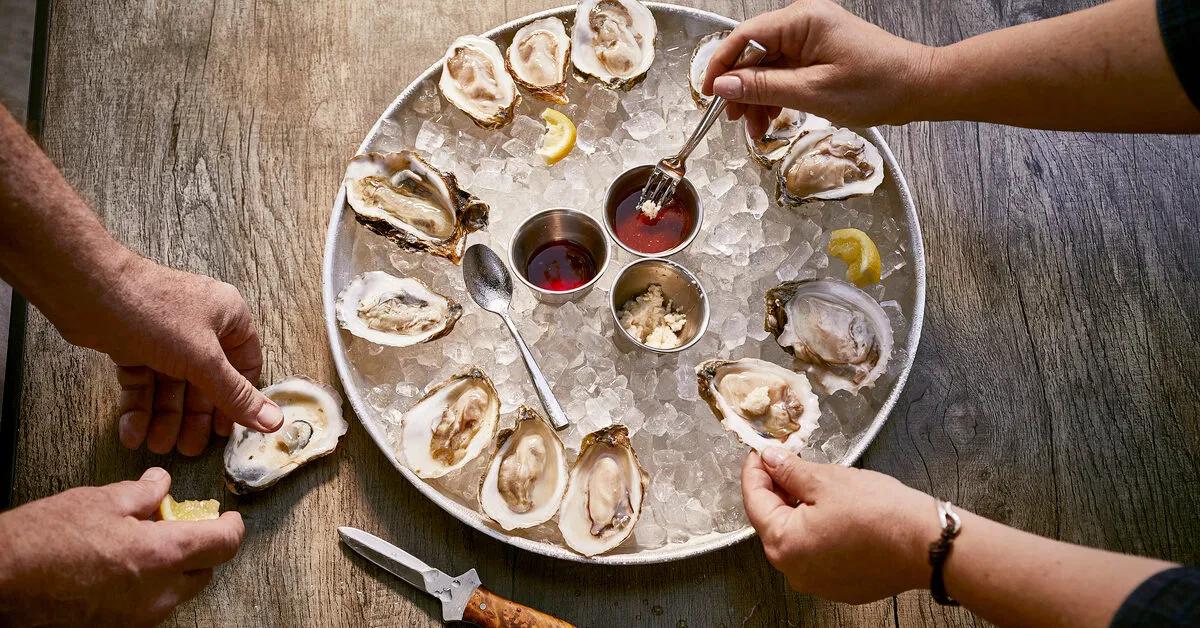Pregnancy is a special time in a woman's life, filled with joy and anticipation. However, it is also a time when certain dietary restrictions and precautions need to be taken to ensure the health and safety of both the mother and the baby. One common question that often arises is whether or not it is safe to eat smoked oysters during pregnancy.
Is it Safe to Eat Oysters During Pregnancy?
The short answer is yes, it can be safe to eat oysters during pregnancy. However, there are certain guidelines that need to be followed to minimize any potential risks. Oysters are often served raw, and consuming raw or undercooked seafood during pregnancy can be dangerous due to the risk of foodborne illnesses and bacterial infections.
When you are pregnant, your immune system is weakened, making you more susceptible to illnesses such as food poisoning. Raw oysters can carry bacteria like Listeria and Vibrio vulnificus, which can lead to complications such as miscarriage, stillbirth, or premature delivery. Therefore, it is important to avoid raw oysters during pregnancy.
In addition to raw oysters, smoked oysters should also be avoided during pregnancy. Although they are technically cooked during the smoking process, they are not always cooked at a safe temperature. It is best to opt for fully cooked oysters to minimize any potential risks.
What Preparations are Safe?
When it comes to consuming oysters during pregnancy, it is important to choose preparations that eliminate the risk of contamination and ensure thorough cooking. Oysters should be fully cooked by methods such as frying, broiling, baking, or boiling. When ordering oysters from a restaurant, always confirm that they are fully cooked before consuming. Fully cooked oysters will have a firm texture.
When cooking oysters at home, it is essential to take steps to avoid cross-contamination. Cooked oysters should never come in contact with raw seafood to prevent the risk of food poisoning. It is crucial to wash your hands thoroughly with warm soap and water after handling raw seafood and avoid touching your face until after you have cleansed your hands.
When purchasing oysters, make sure to buy fresh ones with fully closed shells that smell like saltwater. Do not cook oysters with already-open shells, as this increases the risk of food poisoning. It is also recommended to cook the oysters immediately after buying them, as refrigeration and cooking a few days later can further increase the risk of contamination.
An additional precautionary measure is to boil the oysters for about 3 to 5 minutes before frying, broiling, or baking them. Boiling helps kill bacteria on the shell and provides assurance that the oysters have been thoroughly cooked before consumption.
Mercury Levels in Oysters
Another concern when it comes to eating seafood during pregnancy is the mercury content. Mercury can be harmful to a developing baby's nervous system, so it is important to choose low-mercury options. Fortunately, oysters are considered a best choice when it comes to seafood consumption during pregnancy, according to the Food and Drug Administration (FDA).
However, moderation is still key. It is recommended to consume 2 to 3 servings of seafood from the low-mercury category per week. This equates to about 8 to 12 ounces of seafood. In addition to oysters, other low-mercury seafood options include salmon, sardines, shrimp, scallops, and crab. These options provide essential nutrients like omega-3 fatty acids, which are important for the baby's development.
Alternatives to Oysters During Pregnancy
If you are not a fan of oysters or find them unappealing during pregnancy, there are alternative ways to obtain the same nutritional benefits. Consult with your doctor about taking fish oil supplements or flaxseed oil, which are rich in omega-3 fatty acids. You can also increase your intake of other low-mercury seafood options such as salmon, sardines, herring, and freshwater trout.
Foods that contain zinc, such as peanuts and pumpkin seeds, can also provide similar benefits. It is important to ensure that you are receiving essential nutrients like iron, zinc, and vitamin D by taking your prenatal vitamin daily.
Recognizing the Symptoms of Food Poisoning
Food poisoning is a potential risk during pregnancy, and it is important to be aware of the symptoms. If you consume contaminated food, you may experience symptoms such as nausea, stomach pain, diarrhea, fever, and vomiting. While food poisoning is usually temporary and lasts for a few hours to a few days, it is crucial to seek medical attention if you are pregnant and develop these symptoms.
Special attention should be given if you are unable to keep liquids down, experience bloody vomiting or stools, have diarrhea lasting more than 3 days, or show signs of dehydration. Prompt medical attention can help ensure the health and safety of both you and your baby.
In conclusion, while it is generally safe to eat oysters during pregnancy, certain precautions need to be taken to minimize any potential risks. Avoid consuming raw or undercooked oysters, as they can carry bacteria that can be harmful during pregnancy. Opt for fully cooked oysters that have been fried, broiled, baked, or boiled. Follow proper food handling and cooking practices to prevent cross-contamination and ensure thorough cooking. It is also important to be mindful of mercury levels and consume seafood in moderation. If oysters are not appealing to you, there are alternative low-mercury seafood options and supplements available to provide similar nutritional benefits. Lastly, be aware of the symptoms of food poisoning and seek medical attention if necessary. By following these guidelines, you can enjoy oysters safely during your pregnancy.
If you want to know other articles similar to Can you eat smoked oysters when pregnant? | guidelines and precautions you can visit the Pregnancy category.


Related Articles